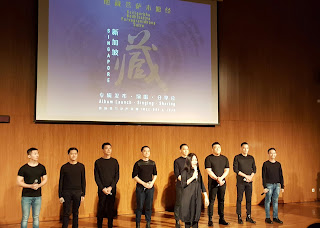This is one of the most touching movies I ever watched. By the way, this is the first time I'm watching South Korean movie. Inspired from Buddhist teaching on karma, reincarnation, hell realm, it shows how various hell judges and King Yeomra (King of the underworld)/King Yama (閻羅大王) from the hell realm judged the deceased and punished them for their evil deeds. This movie is really inspiring, touching and makes you reflect on your life.
The Plot: A fireman died when he saved a young girl. The deceased fireman was escorted and defended by three grim reapers in seven trials in 49 days. If he is found guilty in any one of the trials, he will be punished in hell. Depending on the severity, he would be sentenced a few years to decades in the specific hell realm. In Buddhism, there is no eternal hell. Once the karma is over, he will be reincarnated either to animal or human or proceed to another level in hell. If the fireman passed all the seven trials (indolence, violence and others), then he can be reincarnated. Of course this movie is fictional, but based on Ksitigarbha sutra, there are about 37 different types of hells, like Hell of fire mountain, Hell of molten brass.
I watched this movie in Golden Village cinema as Shaw theatres are not showing it.
To read the different hell realms, you can read Ksitigarbha Sutra. To read on reincarnation that I shared earlier, click here.
Trust me, this movie is awesome! You have to watch it. By the way, please prepare tissue paper. You will need it.





